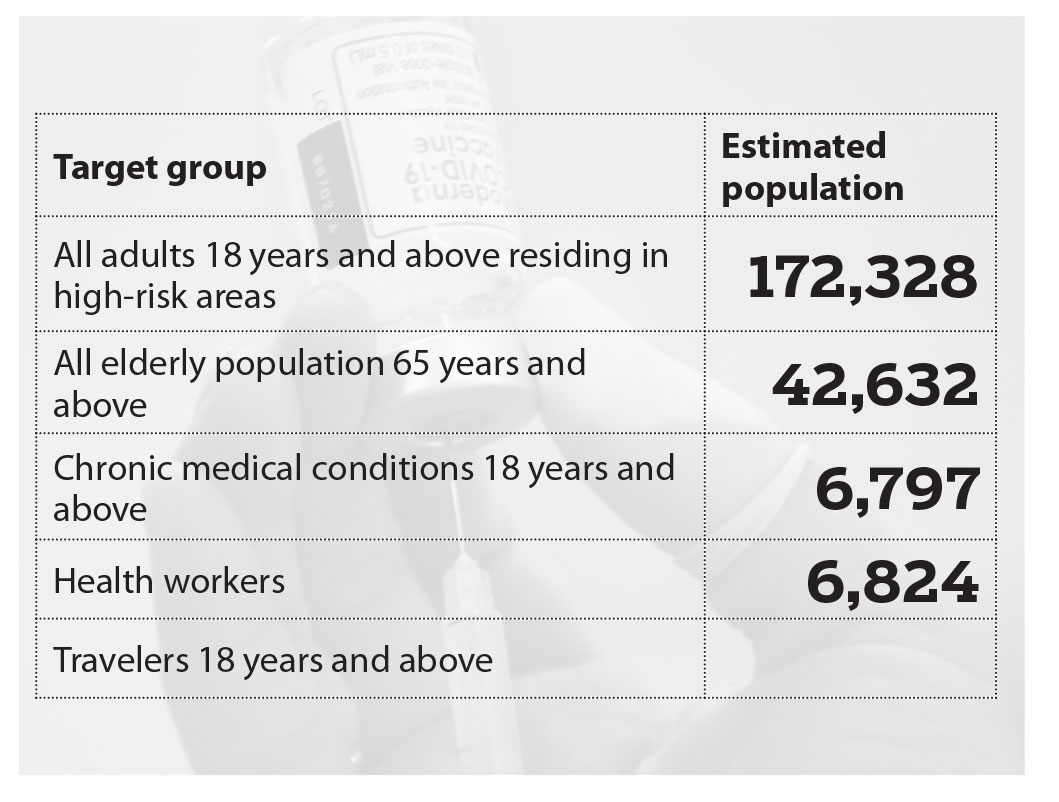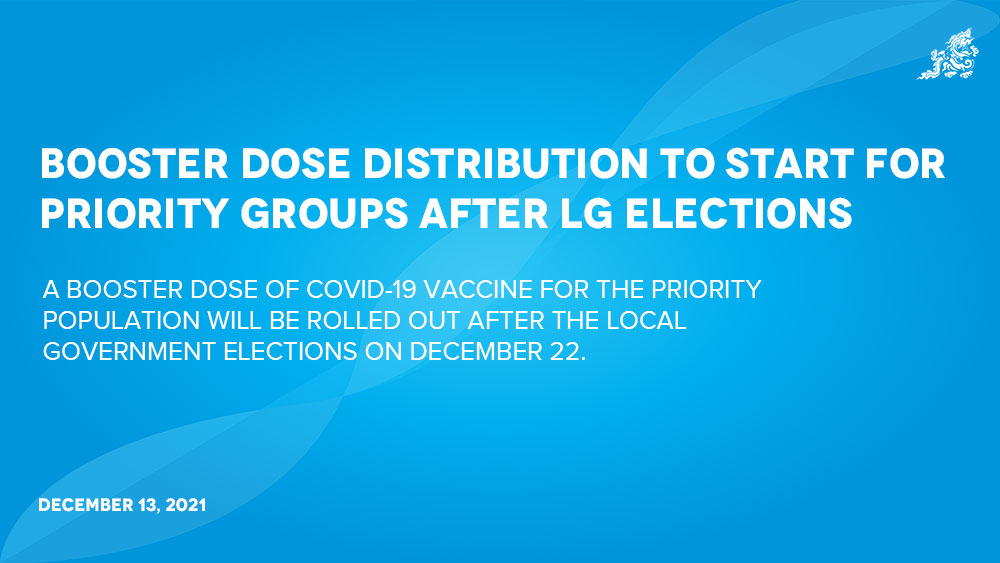Nima Wangdi
A booster dose of Covid-19 vaccine for the priority population will be rolled out after the local government elections on December 22.
The National Immunisation Technical Advisory Group’s (NI-TAG) recommended the booster dose on December 3 to the Prime Minister’s Office (PMO).
Lyonchhen Dr Lotay Tshering has approved the recommendation.

The recommendation was made following NI-TAG’s 20th meeting on Covid-19 vaccines, held on November 15.
Priority groups mean at-risk and vulnerable populations that include all adults who are 18 years and above residing in high-risk areas, 65 years and above who have a higher risk of severe infection, 18 years and above with chronic medical conditions, health workers at higher risk of infection, and people who are 18 years and above travelling abroad.
According to a note sheet the PMO shared, there are 172,328 individuals who are 18 years and above living in high-risk areas. “There are 42,632 people above 65 and with a higher risk of severe infection, 6,797 who are 18 years and above living with a chronic medical condition, and 6,824 health workers at high risk of infection.”
It also states chronic medical conditions include heart disease, diabetes mellitus, chronic respiratory diseases (COPD, asthma, interstitial lung disease, active pulmonary tuberculosis), cancers, chronic kidney diseases, and chronic liver diseases.
For now, only mRNA vaccine types are being used as booster doses worldwide.
However, an official working with the PMO said Lyonchhen has asked the NI-TAG to take another look at using other vaccine types as well. “It’s likely that we could use both mRNA and Viral Vector type vaccines.”
According to the note sheet, the immunity against Covid-19 generally wanes six months after vaccination and infection as per available evidence. “The interval for a booster dose of Covid-19 vaccine is generally four to six months after the second dose.”
It stated that the risk of confirmed coronavirus infection in those who have received boosters appears to be 11-fold less compared to those who have received only two doses. “The booster doses have been proven to be effective.”
It also stated Bhutan has 263,010 doses of mRNA vaccine, out of which 159,570 doses are Pfizer expiring in March 2022, and 103,440 doses of Moderna (half doses) expiring in February 2022. “In addition, there are also 69,000 doses of Covishield expiring in March 2023.”
Meanwhile, Bhutan rolled out its second Covid-19 dose on July 20, the distribution of which lasted for one week and a total of 76.8 percent of the overall population is fully vaccinated as of now.


